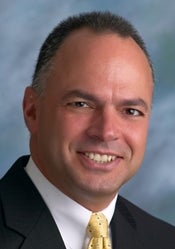Expert Predictions: Education | Will college enrollments keep rising in 2010?
Enrollment at Central Massachusetts colleges and universities rose over the past few years, even as other industries went downhill fast. And colleges are bullish going into 2010, no matter what the economy as a whole does.
Mark Bilotta, CEO of the Colleges of Worcester Consortium, pointed to Quinsigamond Community College as a striking example of the education boom. The college’s enrollment has risen rapidly, and it has responded not just by offering more classes but by expanding its satellite campuses.
“This is a long-term commitment, not a short-term solution,” Bilotta said.
Although community colleges have seen the biggest boost in enrollment, Bilotta said much more expensive schools, including Worcester Polytechnic Institute, have also seen their numbers rise.
That’s especially significant since the number of graduating high school seniors in New England is on the decline. Bilotta said WPI has been successful in drawing students from outside the region, contributing to its growth.
Over the coming years, Bilotta said, the graduating-senior figure is projected to keep falling. But he said the area’s colleges are working on a five- to seven-year strategy to market Worcester as a destination for students from outside the region.
Bilotta said another good sign is that some local colleges that put off capital projects when the economy was sinking are now moving forward again. With the rebound of the stock market, he said, they’re feeling more positive about their endowments and their ability to fund the projects.
With jobs tough to find, many out-of-work residents have gone back to school in an effort to make themselves more attractive job candidates. Jeff Turgeon, executive director of the Central Massachusetts Regional Employment Board, says they’re likely to keep doing the same even after a rebound.
Turgeon said people left without work during the recession have been especially likely to go back to school to get a certificate or associate’s degree in a promising field. It helps, he said, that Massachusetts was ahead of the curve in allowing people to continue collecting unemployment benefits while taking classes.
Turgeon said it’s also not unusual to see college graduates go back to school to get some specialized training. And some people see the recession as a chance to finish what they started years ago.
“In some instances we see a lot of people that have left maybe one or two semesters shy of a degree and now they’re using this opportunity since they’re laid off,” Turgeon said.
Turgeon said that, even as the economy shows some signs of improvement, employment is a lagging indicator, and it may take some time before there are jobs for those who need them. Even if unemployment does ease up in 2010, he said, the jobs that come back are likely to require very specific skills, requiring workers to get special training.
“I don’t see the enrollment slacking anytime soon,” he said.











0 Comments